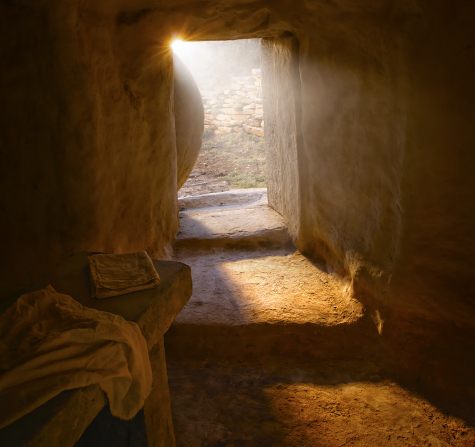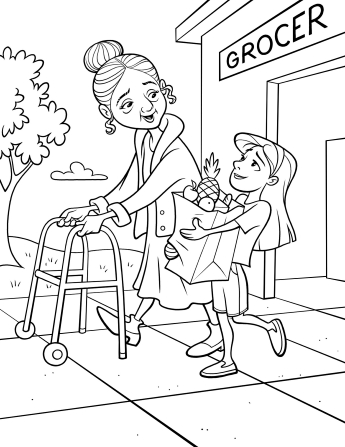The last week of the Saviors mortal life was filled with
many miracles, teachings, and blessings. It began with his triumphal entry into
Jerusalem after which he cleansed the temple and taught many precious truths including the Parable of the 10 Virgins. He instituted the sacrament as
an offering of Himself to His disciples while knowing that one of his closest
friends would betray Him. He spent the last week of His life showing love to
His neighbors only to be rejected and ridiculed by the very same people. What
does this teach me about my Savior? That His love is bigger than anything I can
comprehend and nothing I can say or do will take it away.
The last days of His life were of most importance. They were
the very reason He came to Earth. They
were His mission. They were vital to
each and every person’s existence and salvation who has or ever will come to
the earth. In Matthew 26: 36 we read “Then cometh Jesus with them unto a place
called Gethsemane, and saith unto the disciples, Sit ye here, while I go and
pray yonder.” Jesus was on the brink of the hardest thing He would ever
accomplish. He had to do it alone. If another shouldered the pain, the
sacrifice would not work. In Mosiah 16:13 we read “...remember that only in and
through Christ we are saved.”
He was foreordained, chosen. In our pre-mortal life we knew
that because of the demands of justice we could not return to our beloved
Heavenly Father unless those demands could be satisfied. We all shouted for joy
when it was announced “But, behold, my Beloved Son, which was my Beloved and
Chosen from the beginning, said unto me- Father, thy will be done, and the
glory be thine forever.” (Moses 4:2)
Walking to the Garden was no easy task. Jerusalem is built
on a hill. The way to Gethsemane was a rocky, uphill, narrow path. It much
symbolized the task at hand. Not to mention the meaning of the Garden.
Gethsemane means olive press. Olives come in plenty in Jerusalem. But to get
the oil, which was a healing ointment, they had to press the olives. Olives
were placed on a stone. Another stone was rolled over the top, over and over
again, until oil seeped out. It was much like what Christ experienced in the
Garden. He too was pressed and squeezed until he blead. The pain was
unimaginable. Elder Tad Callister said, “The Savior voluntarily let his
humanity take precedence over his divinity…Not once did he raise the shield of
godhood in order to soften the blows. Not once did he don the bulletproof vest
of divinity. That he also had godly powers did not make his suffering any less
excruciating, and less poignant, or any less real. To the contrary, it is for
this very reason that his suffering was more, not less, than his mortal
counterparts could experience. He took upon him infinite suffering, but chose
to defend with only mortal faculties, with but one exception- his godhood was summoned
to hold off unconsciousness and death that would otherwise overpower a mere
mortal when he reached his threshold of pain. For the Savior, however, there
would be no such relief. His divinity would be called upon, not to immunize him
from pain, but to enlarge the receptacle that would hold it. He simply brought
a larger cut to hold the bitter drink.” (The Infinite Atonement, p119)
As He knelt in the Garden, Jesus prayed, “O my Father, if it
be possible, let this cup pass from me: nevertheless, not as I will, but as
thou wilt.” (Matthew 26:39) Christ knew of the pain he would suffer. But He also knew He had to do it. He did it because
He loved us. Sacrifice is the highest form of love.
Upon completing the first half of his foreordination, He emerged
from the Garden to find His disciples asleep. Yet, with love He said, “Rise,
let us be going; behold, he is at hand that doth betray me.” (Matthew 26:46) He
would be taken into custody by the guards of the high priest and then accused
of blasphemy and condemned to death before Pilate. The people did not know Him.
They could not see who He was and what He had come to do.
In a song called “Through His Eyes”, I wrote:
While nailed to the tree, with eyes so humble
He forgave the men who caused the trouble
“It is finished” were the last words He spoke
Then closed His eyes and ascended above
He died, my Savior with eyes so pure
That I may use His eyes to see
On the third day after His crucifixion, Christ rose from the
tomb. He had overcome death. Not just physical death but spiritual death as
well. He had saved all mankind from the terrible fate that would befall them had
His mission not been completed. Elder Todd Christofferson said, “By His
Atonement and Resurrection, Jesus Christ has overcome all aspects of the Fall…We
can have ultimate trust and confidence in His power to overcome all else and
grant us everlasting life.” (The Resurrection of Jesus Christ, April 2014)
Christ has satisfied the demands of justice that we too may return back to the
presence of Heavenly Father and live with both Him and Jesus Christ in the
Eternities. He overcoming death has allowed us to accomplish anything,
according to Gods will. “For with God nothing shall be impossible.” (Luke 1:37)
It is a blessing to know that life doesn’t end when our mortal experience it
over. Because of Christ we will continue to live and progress forever. We will
continue to experience joy and love as we go about doing good.
In the song “He is Risen” by Cecil Alexander, we sing:
He is risen! He is risen!
He hath opened heaven’s gate.
We are free from sin’s dark prison,
Risen to a holier state.
I am so grateful that I get to
live with my Heavenly Father and Savior again, if I do what He has asked so
many times: Come unto Me. I know that through the power of the Atonement and Resurrection
we are saved from the harshness of what could have been. But because Christ
love us so much, He chose to deliver us from that fate. I love Him with all my
heart. While conversing with the Apostles, the resurrected Savior gave them
this charge, which He also gives to us:
“All power
is given unto me in heaven and in earth. Go ye therefore, and teach all
nations, baptizing them in the name of the Father, and of the Son, and of the
Holy Ghost: Teaching them to observe all things whatsoever I have commanded
you: and, lo I am with you alway, even unto the end of the world.” (Matthew
28:18-20)
I know the
Lord is always with us because He loves us and therefor has engraved us upon His palms.






